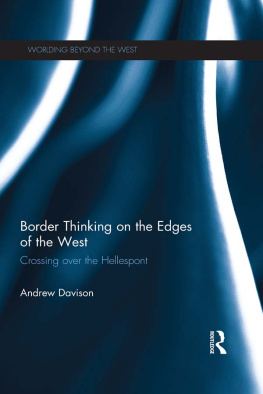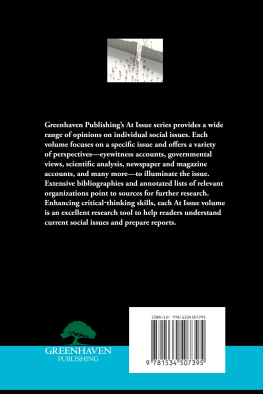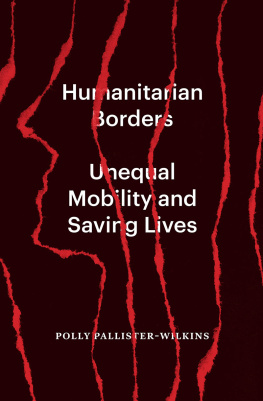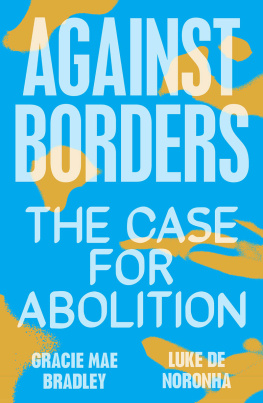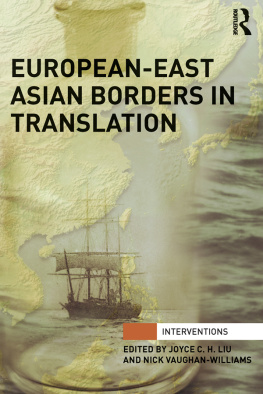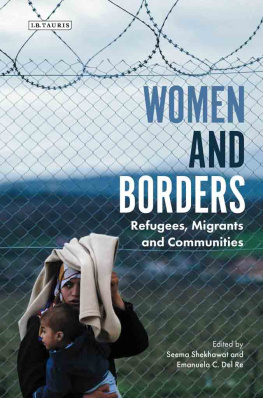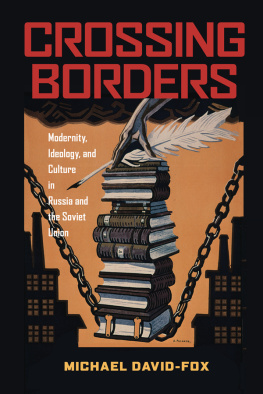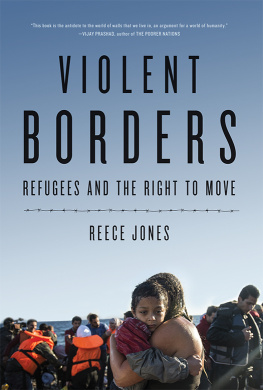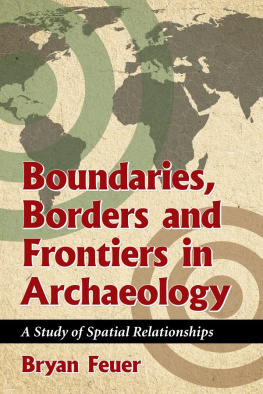BORDER THINKING ON THE EDGES OF THE WEST
Drawing on scholarly and life experience on, and over, the historically posited borders between West and East, the work identifies, interrogates, and challenges a particular, enduring, violent inheritance what it means to cross over a border from the classical origins of Western political thought. The study has two parts. The first is an effort to work within the Western tradition to demonstrate its foundational and enduring, violent conception of crossing over borders. The second is a creative effort to explore and encourage a fundamentally different outlook towards borders and what it means to be on, at, or over them. The underlying social theoretical disposition of the work is a form of post-Orientalist hermeneutics; the textual subject matter of the two parts of the study is linked using Walter Benjamin's concept of the storyteller.
The underlying premise of the work is that the sense of violent possibility on the borders between West and East existed well before the more recent age of imperialism and even before there was a West or an East to speak of. That sense is constitutive of a political imagination about borders developed deep within the revered sources of Western culture. On the other hand, confronting the influence of such violent imaginaries requires truly novel modes of hermeneutical openness, hospitality and solidarity.
Seeking to offer a new understanding and opening in the study of borders, this work will provide a significant contribution to several areas including international relations theory, border studies and political theory.
Andrew Davison is Professor of Political Science at Vassar College, USA.
WORLDING BEYOND THE WEST
Series Editors:
Arlene B. Tickner, Universidad de los Andes, Bogot,
Ole Wver, University of Copenhagen, David Blaney,
Macalester College and Pinar Bilgin, Bilkent University
The Worlding Beyond the West series editorial board are:
Naeem Inayatullah (Ithaca College, USA), Himadeep Muppidi (Vassar College, USA), Mustapha Kamal Pasha (University of Aberdeen, UK), Sanjay Seth (Goldsmiths, University of London, UK), Quin Yaqing (China Foreign Affairs University, China), Navnita Chandra Behera (Jamia Milia Islamia University, India).
Historically, the field of International Relations has established its boundaries, issues, and theories based upon Western experience. This series aims to explore the role of geocultural factors in setting the concepts and epistemologies through which IR knowledge is produced. In particular, it seeks to identify alternatives for thinking about the international that are more in tune with local concerns and traditions outside the West.
1. INTERNATIONAL RELATIONS SCHOLARSHIP
AROUND THE WORLD
Edited by Arlene B. Tickner and Ole Wver
2. THINKING THE INTERNATIONAL DIFFERENTLY
Edited by Arlene B. Tickner and David L. Blaney
3. INTERNATIONAL RELATIONS IN FRANCE
Writing between discipline and state
Henrik Breitenbauch
4. CLAIMING THE INTERNATIONAL
Edited by Arlene B. Tickner and David L. Blaney
5. BORDER THINKING ON THE EDGES OF THE WEST
Crossing over the Hellespont
Andrew Davison
BORDER THINKING ON THE EDGES OF THE WEST
Crossing over the Hellespont
Andrew Davison
First published 2014
by Routledge
2 Park Square, Milton Park, Abingdon, Oxon OX14 4RN
and by Routledge
711 Third Avenue, New York, NY 10017
Routledge is an imprint of the Taylor & Francis Group, an informa business
2014 Andrew Davison
The right of Andrew Davison to be identified as author of this work has been asserted by him in accordance with the Copyright, Designs and Patent Act 1988.
All rights reserved. No part of this book may be reprinted or reproduced or utilised in any form or by any electronic, mechanical, or other means, now known or hereafter invented, including photocopying and recording, or in any information storage or retrieval system, without permission in writing from the publishers.
Trademark notice: Product or corporate names may be trademarks or registered trademarks, and are used only for identification and explanation without intent to infringe.
British Library Cataloguing in Publication Data
A catalogue record for this book is available from the British Library
Library of Congress Cataloging in Publication Data
Davison, Andrew, 1962
Border thinking on the edges of the West: crossing over the Hellespont / Andrew
Davison.
pages cm. (Worlding beyond the West ; 5)
Includes bibliographical references and index.
1. BoundariesPhilosophy. 2. Border crossingPhilosophy. 3. East and West. I.
Title.
JC323.D38 2014
320.12dc23
2013027600
ISBN: 978-0-415-70979-8 (hbk)
ISBN: 978-1-315-88532-2 (ebk)
Typeset in Times New Roman
by Taylor & Francis Books
Permissions
Rome and the Mediterranean: Books XXXIXLV of the History of Rome from its Foundation by Livy, translated by Henry Bettenson, introduction by A.H. McDonald (Penguin Classics, 1976). Translation Henry Bettenson, 1976. Introduction A.H. McDonald, 1976. Reproduced by permission of Penguin Books Ltd.
The History of Alexander by Quintus Curtius Rufus, translated by John Yardley, introduction and notes by Waldemar Heckel (Penguin Classics, 1984). Translation John Yardley, 1984. Introduction, notes and additional material Waldemar Heckel, 1984. Reproduced by permission of Penguin Books Ltd.
I wish to thank Yaar Kemal for his generosity in permitting me to convey extensive selections from nce Memed, volumes 13, Istanbul: Yap Kredi Yaynlar. u dnyada ne iyi insanlar var.
CONTENTS
PART ONE
When words maintain their meanings and the world is an abode of war
PART TWO
On the fatal boundaries
You and I were walking along the river towards the railway bridge and we had a heated discussion in which you made a remark about national character that shocked me by its primitiveness. I then thought: what is the use of studying philosophy if all that it does for you is to enable you to talk with some plausibility about some abstruse questions of logic, etc., and if it does not improve your thinking about important questions of everyday life, if it does not make you more conscientious than any journalist in the use of the dangerous phrases such people use for their own ends. You see, I know that its difficult to think well about certainty, probability, perception, etc. But it is, if possible still more difficult to think, or try to think, really honestly about your life and other peoples lives. And the trouble is that thinking about these things is not thrilling, but often downright nasty. And when its nasty its most important. Let me stop preaching. What I wanted to say was this: Id very much like to see you again; but if we meet it would be wrong to avoid talking about serious non-philosophical things. Being timid I dont like clashes, and particularly not with people I like. But Id rather have a clash than mere superficial talk.
Ludwig Wittgenstein1
What is entailed, both imaginatively and in practice, in crossing over the most symbolically meaningful borders in our experience? What is entailed in being on, or going to, the other side? What can someone who has traveled with the hope of conveying something understandable across borders the original purpose of the Fulbright dissertation grant I was privileged to receive in the early 1990s someone who, as a result, now lives across the divide, give back? I seek to resuscitate the memories of first encounters places and spaces where we all seemingly first met, as collectivities, and in the process created powerful first impressions, many of which emerged and disappeared too quickly, some of which remain accessible through the study of history, literature, and other modes of artistic expression.

